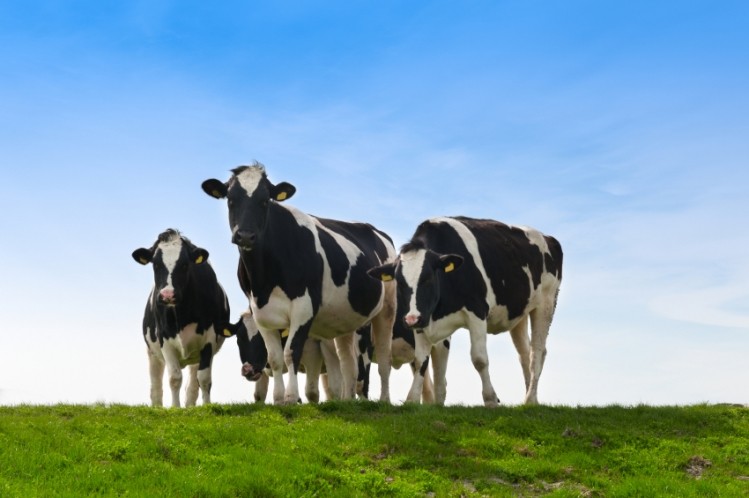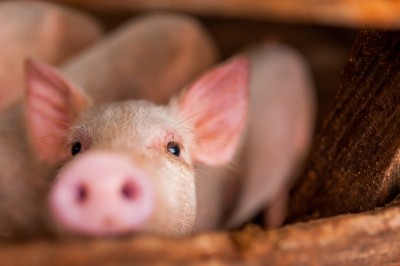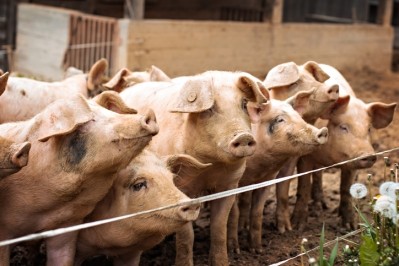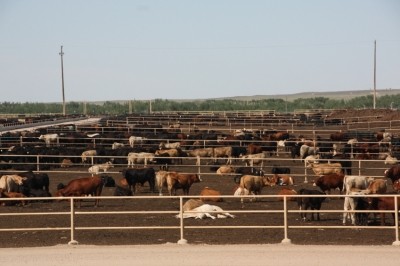Merck rejects study linking Zilmax to thousands of cattle deaths

Research led by Dr Guy Loneragan, professor of food safety and public health based at Texas Tech University, claims during 2011 and 2012, over 3,800 cattle in 10 feedlots in the US that were fed Zilmax died.
In an article published yesterday in the scientific journal PLOS ONE, the authors claim that between 40 and 50% of the deaths can be linked to the zilpaterol-based feed additive.
Reuters said yesterday that the numbers reported in Dr Loneragan’s research would indicate a larger death toll than it had found late last year in its review of all deaths reported to the US Food and Drug Administration (FDA) by Merck since Zilmax was introduced in 2007.
Its review of federal records, said Reuters, showed Merck had reported that 285 cattle had died unexpectedly or were destroyed in the US after being fed the additive during the six years of its sales there.
Merck response to new research
Merck animal health director of communications, Kelly Goss, told FeedNavigator.com that the study by Dr. Loneragan was “not a clinical trial” and that “he did not conduct a study on zilpaterol.”
She said that Dr Loneragan’s opinions are based on observational information and Merck disagrees with them.
“Only a well-designed clinical study, in a real world setting coupled with analysis of data by third-party industry experts, can thoroughly confirm the safety profile and performance of a product.
In more than 30 studies, totaling 65,000 head of cattle, conducted by well-respected universities and third-party experts using sound scientific principles, no increase in death loss for cattle fed Zilmax compared to controls was observed,” said Merck in a statement on the research published in PLOS ONE yesterday.
The company added that using observational analyses where cattle are not randomized and where rigorous scientific procedures are not utilized, is not a respected scientific method to rigorously evaluate the safety and efficacy of any product.
“To be scientifically rigorous, researchers must randomize and replicate groups of cattle that allow for the creation of control and treatment groups,” continued Merck.
And the company said that it takes “any adverse event report very seriously and investigates each one thoroughly, often utilizing independent experts to provide additional support, knowledge and expertise.”
Question mark hangs over Zilmax safety
The controversial, muscle-building Zilmax, which is fed to cattle during the last few weeks they are in feed yards, was approved by the FDA in 2006, but its safety was called into question in August 2013 after video footage emerged in the US of cattle showing trouble walking and other signs of distress after taking a growth drug.
The supplier halted sales of the drug last summer after Tyson Foods said it would no longer accept Zilmax-fed beef, further raising global concerns about its use.
In August 2013, beef processing giant Cargill also said it would not accept Zilmax-fed beef into its supply chain until the animal welfare issues were resolved.
Cargill said its ban on the use of the feed additive applies both to beef it processes, as well as to cattle in its own feed lots.
Goss told this publication today that “it is too early to say” when the company will resume sales of Zilmax in the US and Canada.
But she said Merck is continuing its field evaluation program on the feed additive as part of its five-step approach to ensuring responsible beef.
Goss did not respond in time for publication to our request for clarity from Merck on its federal reporting regarding the number of cows that have died unexpectedly or were destroyed in the US after being fed the additive prior to the suspension of Zilmax sales in the US.
The study
The researchers at Texas Tech University and Kansas State University said the feedlot operators sent them data on cattle that were fed with zilpaterol hydrochloride (Zilmax), requesting their analysis.
The authors analyzed “observational data” from nine feedlots in the US that fed the cattle the Zilmax. The total amount of cattle under review was 722,704 animals in 2011 to 2012.
Of 637,339 that were fed with zilpaterol hydrochloride, 0.53% died ahead of slaughter, found the research.
This was higher than the 0.3% death rate among the 85,365 cattle that were fed neither Zilmax nor another beta-agonist, Optaflexx, said the authors.
“Administration of zilpaterol hydrochloride was associated with a significant increase in the likelihood of death,” said the team behind the research.
But the researchers say that given the observational nature of the data they evaluated, it “is difficult to definitively establish a causal relationship” between Zilmax and higher mortality rates in cattle.
South Korea to lift ban
Meanwhile, in October last year, South Korea said it would end its ban on Zilmax in early 2014, which would open the door to beef imports containing the growth enhancer.
The Asian state previously had a zero-tolerance policy on zilpaterol-based drugs but a government risk assessment found the feed additive could be permitted at certain levels.
The South Korean assessment was done at the request of a subsidiary of Merck & Co - MSD Animal Health Korea.
Study title: Increased Mortality in Groups of Cattle Administered the b-Adrenergic Agonists Ractopamine Hydrochloride and Zilpaterol Hydrochloride
Authors: Loneragan GH, Thomson DU, Scott HM (2014)
Published Online: PLoS ONE 9(3): e91177. doi:10.1371/journal.pone.0091177
The research article can be read here














